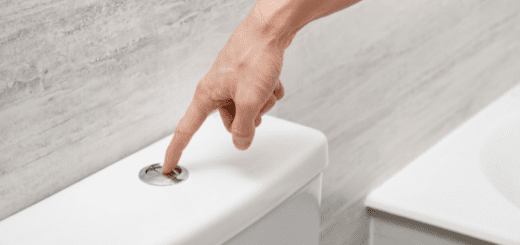How Homeowners Can Optimize Their Tax Return
In any other year, the tax deadline would be quickly approaching on April 15th. However, due to the spread of COVID-19, the deadline has been pushed back an additional three months by the federal government. The new Tax Day is July 15th. With some additional time to file your tax return, make sure to do your due diligence and get the most out of your return. Here are several strategies that homeowners can use to optimize their tax returns.
Optimization Basics
 The first thing to consider when optimizing your tax return is the method in which you will file. Some options are better than others when it comes to the speed of your refund, accuracy of the documents, and amount of money you may receive.
The first thing to consider when optimizing your tax return is the method in which you will file. Some options are better than others when it comes to the speed of your refund, accuracy of the documents, and amount of money you may receive.
Receiving Your Refund Quickly
If you want to get your refund as fast as possible, you’ll want to submit electronically, rather than mailing your forms. The IRS is able to process and return e-files in about half the time it would take for paper files.
Another quick way to receive your refund once it is processed is by choosing direct deposit as your refund method. Your financial institution can process the direct deposit in a matter of days, compared to the several weeks it would take to receive the check by mail. Sending the direct deposit to a financial institution with no fees will guarantee that you don’t lose any money from your refund.
Minimizing Mistakes
Using a tax software to file electronically can help you make less mistakes. Tax software does most, if not all of the calculations for you, leaving less room for human error. All you have to do is make sure you’re inputting the correct numbers. Furthermore, if you input the incorrect personal information (such as your social security number) you’ll be notified almost immediately when e-filing, whereas an incorrect paper form could be delayed up to 6 to 8 weeks by the IRS.
Tax Deductions and Credits for Homeowners
There are a variety of tax deductions and credits available to homeowners based on their personal situation. Whether you’re making the choices, or the situation is outside of your control, you can still make the most of it. These are a few of the most common options:
Green Energy
If you have a green energy system in your home, you may qualify for a tax credit. Solar energy units, wind power generation, geothermal heat pumps, and fuel cell energy systems are all eligible. You may be able to write off up to 26% of equipment and installation costs.
Another option is the Nonbusiness Energy Property Tax Credit, which was extended from 12/31/2017 to 12/31/2020. What this means is that homeowners who improved their home’s energy efficiency may be eligible for up to a maximum of $500. Possible sources of improvement include home insulationInsulation is a material used in buildings to reduce the tra... More, door/window upgrades, roofing, heating/cooling, etc.
Home Renovation
One of the most popular home renovation tax deductions is applied to the construction of a home office. However, there are some rules that apply in order to be eligible. The two basic requirements (although not the only) are that your home office must be used exclusively for business purposes and used as the principal place of your business. You can deduct a percentage of the actual expenses, which is more complex, but could result in a larger refund. Or you can use the simplified method and deduct $5 per square foot of your home office, up to 300 sq. ft. for a total of $1500.
Although it may not be a common renovation, you may be able to write off home improvements made for medical care as well. This could include installing ramps or lifts, widening hallways or door entrances, modifying cabinet heights, etc. Also, don’t forget to claim the miles you drove to get to your medical appointments. However, in order to be eligible, you must itemize these deductions.
Natural Disasters
In order to qualify for the natural disaster tax relief, the event must be a federally declared disaster. The IRS website has a list of all recent natural disasters that apply, including the California wildfires, earthquakes in Puerto Rico, hurricanes, like Dorian and Michael, tornadoes/flooding in Tennessee, etc.
There are several different types of tax relief associated with these disasters. First, you could get your filing date delayed, giving you more time to submit your tax return. Second, the IRS may waive any kinds of fees or late penalties that you incur. And finally, you may be able to deduct any casualty or personal property losses that apply to you.
What To Do With Your Refund
Once you’ve received your refund, you’ll need to decide how you want to invest it. While some choose to save, others may have plans for their money. Whatever decision you make should be one that is most beneficial.
Updating Your Home
 After you’ve received your tax refund, you may decide to reinvest in your home. Whether it’s a small update, or a large project you’ve been wanting to tackle for a while, there are plenty of ways to revamp your home with the money you receive after you file your taxes. When it comes to home renovations, a few factors come into play:
After you’ve received your tax refund, you may decide to reinvest in your home. Whether it’s a small update, or a large project you’ve been wanting to tackle for a while, there are plenty of ways to revamp your home with the money you receive after you file your taxes. When it comes to home renovations, a few factors come into play:
- The age of your home
- The amount of time you plan to spend living in your home
- Whether or not you’re in the market to sell.
Regardless of the reasoning behind your choice to renovate, the main thing to keep in mind is that you want these changes to improve or add to the value of your home and property. Even small repairs can make staging your home easier if you end up selling your home. A few examples include:
- Adding on or repairing a deck space
- Building a home office
- Making updates to areas such as the kitchen or bathroom.
Or, you may use the money you received from your tax refund to make repairs to your home. These might include some long-overdue water damage restoration, or moldMold is a type of fungus that grows in damp or humid conditi... More removal. Either way, making improvements to your home will not only increase its value, but also entice buyers, should you wish to sell in the future.
Like anything else, it’s important to do your research prior to making these decisions, as there are right and wrong ways to go about them. If your area of expertise is not in-home improvement, seek out the opinion of a professional, or hire a reputable company to take care of the job for you.













